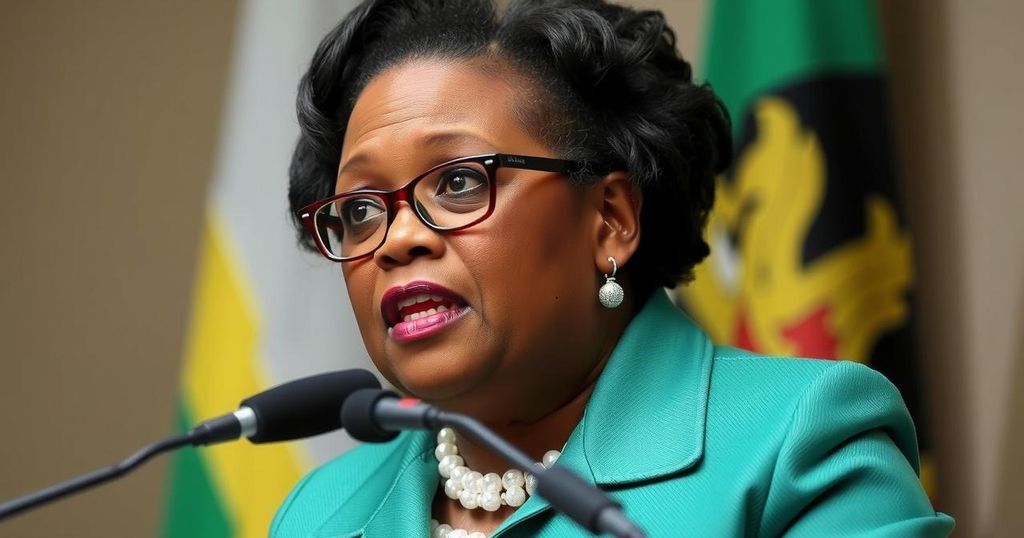Prime Minister Dr. Keith Rowley of Trinidad and Tobago has justified the state’s declaration of a state of emergency to combat rising crime, including 623 homicides last year. The SOE aims to restore safety amidst escalating violence, despite concerns about civil liberties. Rowley emphasized the need for balanced action to protect citizens from criminal threats, further supported by National Security Minister Fitzgerald Hinds who characterized the violence as an epidemic.
Prime Minister Dr. Keith Rowley of Trinidad and Tobago has publicly defended the government’s recent decision to implement a state of emergency (SOE). This SOE was introduced to safeguard national security, particularly in light of recent violent crime trends including murder and gang-related violence. In his New Year’s address, Rowley stated that while fundamental rights are important, they must be balanced against the need to protect citizens from criminal actions that threaten public safety. He urged the population to understand the necessity of these measures in combating a rise in violent crime, which saw 623 homicides last year, with a noted increase in violent incidents during December alone.
Rowley explained the government’s response amid escalating violence characterized as an epidemic, citing 61 murders in December as particularly alarming. The State is acting swiftly to address the situation, emphasizing the urgent need to restore order and safety. The Minister of National Security, Fitzgerald Hinds, supported Rowley’s statements, condemning the current wave of violence stemming from criminal activities such as home invasions, kidnappings, and extortion, which have become prevalent. While the SOE enables law enforcement to conduct warrantless searches, it will not include restrictions on movement to minimize economic disruptions during this challenging time.
Trinidad and Tobago has faced escalating crime rates, particularly violent crimes such as homicides and shootings, leading to public concern and demands for government action. Homicides increased from 577 in 2023 to 623 in 2024, highlighting a significant and troubling trend. The decision to declare a state of emergency reflects the government’s need to mitigate these issues and reinforce public safety measures in response to widespread lawlessness. Past instances of SOE declarations indicate that this is not an isolated action but part of a larger series of governmental responses to severe criminal threats.
The declaration of a state of emergency by Prime Minister Rowley and his administration in Trinidad and Tobago is a decisive response to alarming crime rates, particularly violent crimes. By temporarily prioritizing public safety over certain civil liberties, the government aims to address the immediate threats posed by criminal activities and restore order. The ongoing engagement with law enforcement and the community will be critical in overcoming the challenges posed by this surge in violence.
Original Source: www.jamaicaobserver.com






